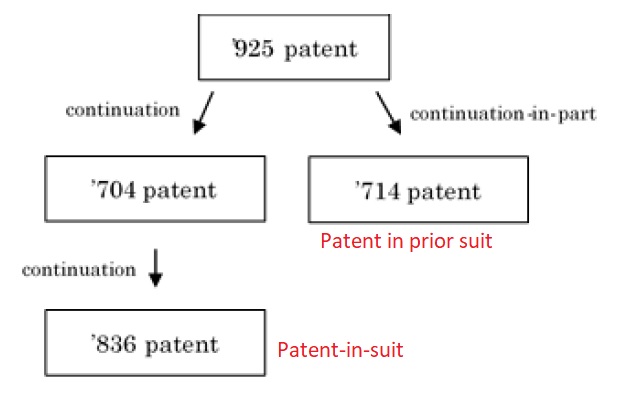In Cheetah Omni LLC v. AT&T Services, Inc., [2019-1264] (February 6, 2020) the Federal Circuit affirmed the dismissal of claims for infringement of U.S. Patent No. 7,522,836.
AT&T (and its supplier Ciena) moved for summary judgment that Cheetah’s infringement claim was barred by agreements settling previous litigation between Cheetah and Ciena involving U.S. Patent No. 7,339,714 the patent-in-suit’s “Aunt”.

To dispose of the previous litigation, Cheetah granted to Ciena “a perpetual, irrevocable, worldwide, non-exclusive, fully paid-up license under the Licensed Patents to make, have made (directly or indirectly and solely for Ciena or its Affiliates), use, offer to sell, sell, and import and export the Licensed Products.” “Licensed Patents” were defined as:
(i) the Patents-in-Suit, and (ii) all parents, provisionals, substitutes, renewals, continuations, continuations-in-part, divisionals, foreign counterparts, reissues, oppositions, continued examinations, reexaminations, and extensions of the Patents-in-Suit owned by, filed by, assigned to or otherwise controlled by or enforceable by Cheetah or any of its Affiliates or its or their respective successors in interest at any time as of, prior to, on or after the Effective Date, whether filed before, on or after the Effective Date.
Relying on General Protecht Group Inc. v. Leviton Manufacturing Co., 651 F.3d 1355, 1361 (Fed. Cir. 2011), the district court determined that the ’836 patent was impliedly licensed as the grandchild of the expressly licensed ’925 patent of the ‘714 patent. The Federal Circuit agreed, noting that the presumption established in General Protecht provided a simple and clear resolution in the case. Because the ’925 patent was expressly licensed, the license also included an implied license to a continuation of its continuation, the ’836 patent-in-suit.
Because the licenses extend to both the ’836 patent and the accused AT&T products the district court properly granted summary judgment for AT&T and Ciena and dismissed the infringement suit.
